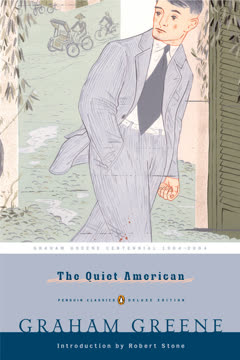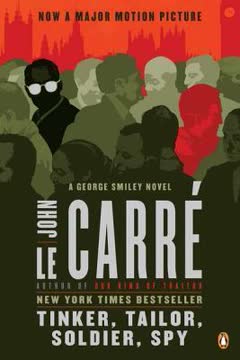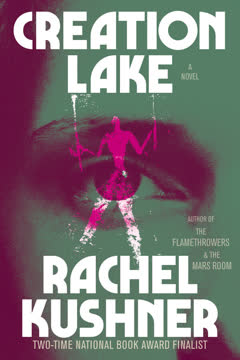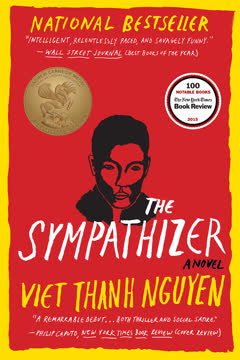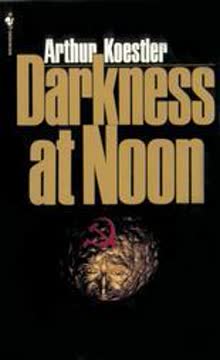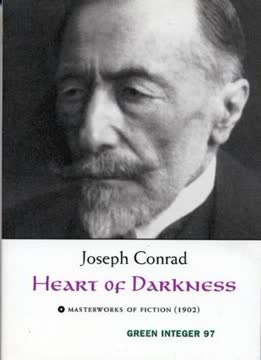Plot Summary
Saigon Shadows and Waiting
British journalist Thomas Fowler waits in his Saigon apartment for Alden Pyle, a young American attached to the Economic Aid Mission. The city is restless, the war's presence felt in every shadow and every conversation. Fowler's lover, Phuong, waits with him, her presence both comfort and complication. The night is thick with unspoken anxieties—about Pyle's absence, about the future, about the war that seeps into every relationship. Fowler's opium habit offers a fragile escape, but the world outside presses in. The old women gossip on the landing, the police are ever-present, and the city's heat is oppressive. The chapter sets the tone: a world of uncertainty, where personal and political fates are intertwined, and where waiting is both literal and existential.
The Murdered Idealist
The news arrives: Pyle has been found dead, murdered under a bridge. Fowler is summoned by the French police, led by the weary, philosophical Vigot. The investigation is perfunctory, but the emotional impact is profound. Fowler is forced to confront his own feelings—guilt, relief, sorrow, and a strange sense of responsibility. Pyle's idealism, his belief in doing good, is contrasted with the brutal reality of Vietnam's war. The chapter explores the ambiguity of innocence and the dangers of good intentions, as Fowler reflects on the events that led to Pyle's demise and the role he may have played, directly or indirectly, in the young American's fate.
Love Triangle Unveiled
The story rewinds to the beginning of Fowler's acquaintance with Pyle. Pyle, earnest and naive, is introduced to Phuong, Fowler's beautiful and enigmatic Vietnamese lover. The three form a delicate triangle, each with their own desires and limitations. Pyle is captivated by Phuong's grace and innocence, seeing in her the embodiment of his ideals. Fowler, older and more cynical, clings to Phuong as his last hope for happiness. Phuong, practical and inscrutable, navigates between the two men, her choices shaped by survival as much as affection. The chapter delves into the cultural and emotional misunderstandings that define their relationships, setting the stage for inevitable conflict.
War's Tidy Distance
Fowler travels north to report on the war, witnessing the siege of Phat Diem. From the safety of a cathedral bell tower, he observes the battle below—parachutes, mortar fire, refugees. The war, seen from a distance, appears almost picturesque, but up close it is chaos and death. Fowler's detachment is both a professional necessity and a personal defense. He reflects on the absurdity of colonial wars, the suffering of civilians, and the futility of trying to impose order on a land that resists foreign control. The chapter underscores the limits of observation and the moral ambiguity of reporting without involvement.
The Third Force Dream
Pyle, inspired by the writings of York Harding, becomes obsessed with the idea of a "Third Force" in Vietnam—a non-Communist, non-colonial alternative that could save the country. He seeks out General The, a warlord with dubious motives, believing he can shape history through American support and idealism. Fowler is skeptical, warning Pyle of the dangers of meddling in a complex society he barely understands. The chapter explores the seductive power of abstract ideas and the peril of imposing them on reality, as Pyle's actions begin to have unintended and deadly consequences.
Phat Diem's Deadly Lessons
Fowler and Pyle's journey to Phat Diem brings them face to face with the true cost of war. They witness the aftermath of battle—bodies in canals, a dead child in a ditch, the suffering of refugees. The experience shakes Pyle's confidence but does not deter his belief in intervention. Fowler, meanwhile, is haunted by the senselessness of violence and the impossibility of remaining uninvolved. The chapter is a meditation on mortality, compassion, and the limits of Western understanding in the face of Eastern suffering.
Confessions in the Night
In the darkness of a war-torn night, Fowler and Pyle share confessions—about love, sex, fear, and the future. Pyle admits his love for Phuong and his intention to marry her, believing he can offer her security and respect. Fowler, wounded and vulnerable, confesses his own selfishness and desperation to keep Phuong. Their conversation is raw and revealing, exposing the deep psychological needs that drive them. The night becomes a crucible, forging a reluctant bond between rivals and highlighting the tragic impossibility of understanding another's heart.
Choices and Consequences
The love triangle reaches a crisis as Pyle formally proposes to Phuong, offering marriage and a new life in America. Fowler, unable to marry due to his estranged wife in England, is forced to confront the reality of losing Phuong. Phuong's choice is pragmatic—she desires security, but is wary of leaving the familiar for the unknown. The chapter explores the intersection of personal desire, cultural expectation, and the harsh realities of colonial life. Every choice carries consequences, and no one can escape unscathed.
The Plastic Bomb Plot
A series of plastic bomb attacks rocks Saigon, killing and maiming civilians. Fowler uncovers evidence linking Pyle and his "Third Force" allies to the bombings, realizing that Pyle's idealism has been weaponized with deadly results. The line between innocence and guilt blurs, as good intentions lead to atrocity. Fowler is tormented by his knowledge, torn between exposing Pyle and protecting Phuong. The chapter is a study in moral compromise, as the cost of involvement becomes painfully clear.
Betrayals and Departures
Phuong leaves Fowler for Pyle, guided by her sister's ambition and her own need for security. Fowler is left alone, consumed by jealousy and regret. He attempts to win Phuong back through deception, forging a letter from his wife to suggest the possibility of marriage. The betrayal is discovered, deepening the rift between the characters. The chapter examines the ways in which love can become a battleground, and how personal betrayals mirror the larger betrayals of nations and ideologies.
Innocence and Guilt
As the violence escalates, Fowler is forced to confront his own complicity in the events unfolding around him. He realizes that detachment is an illusion—by doing nothing, he has allowed evil to flourish. The deaths of innocents weigh heavily on his conscience, and he is haunted by the knowledge that Pyle's actions, however well-intentioned, have led to tragedy. The chapter is a meditation on guilt, responsibility, and the impossibility of remaining uninvolved in a world at war.
The Cost of Involvement
Fowler is approached by Mr. Heng, a shadowy figure with connections to the Vietminh, who asks for his help in stopping Pyle. Fowler is faced with an agonizing choice: to betray a friend in order to prevent further bloodshed. The decision is not made lightly, and the psychological toll is immense. The chapter explores the theme of engagement—how, sooner or later, everyone must take a side, and how the cost of involvement is measured in lives and souls.
The Bombs in Saigon
A devastating bomb attack in Saigon's city center kills dozens of civilians, including women and children. Fowler, nearly caught in the blast, is overwhelmed by the horror and senselessness of the violence. He confronts Pyle, who admits to warning Americans to stay away but remains blind to the suffering of the Vietnamese. The chapter is a searing indictment of foreign intervention, as the consequences of idealism are written in blood on the streets of Saigon.
The Final Decision
Unable to bear the mounting death toll, Fowler agrees to help Mr. Heng arrange a meeting with Pyle, knowing it will lead to Pyle's assassination. The act is both a betrayal and a sacrifice, done in the hope of saving lives. Fowler's internal conflict is acute—he is no longer an observer, but an active participant in the violence he once condemned. The chapter is a study in moral ambiguity, as Fowler grapples with the price of action and the weight of conscience.
Aftermath and Regret
In the wake of Pyle's death, Fowler is consumed by guilt and self-doubt. The police investigation circles around him, but he is never charged. Phuong returns to him, her motivations as inscrutable as ever. Fowler's victory is hollow—he has won Phuong, but lost his innocence. The chapter explores the enduring scars of violence, the impossibility of undoing the past, and the loneliness that comes from knowing the truth.
The Return of the Past
Fowler receives a letter from his wife, granting him a divorce at last. The news comes too late to change anything—Phuong is with him, but the world has shifted. The war grinds on, indifferent to personal dramas. Fowler reflects on the cycles of love and loss, the persistence of memory, and the ways in which the past shapes the present. The chapter is elegiac, suffused with a sense of resignation and the faint hope of redemption.
The End of Innocence
The novel closes with Fowler and Phuong together, but the innocence of the past is gone. The war continues, the city remains tense, and the future is uncertain. Fowler is left to ponder the meaning of his actions, the limits of love, and the cost of involvement. The story ends not with triumph, but with a quiet acknowledgment of loss and the enduring complexity of the human heart.
Characters
Thomas Fowler
Fowler is a British journalist in his fifties, stationed in Vietnam to report on the war. He prides himself on his detachment, believing that he can observe without becoming involved. His relationship with Phuong is both a refuge and a source of anxiety—she represents youth, beauty, and the possibility of happiness, but also the fear of loneliness and aging. Fowler's cynicism masks a deep vulnerability, and his attempts to remain uninvolved are ultimately futile. Over the course of the novel, he is forced to confront his own complicity in the violence around him, making choices that shatter his illusions of innocence. His psychological journey is one of self-discovery, guilt, and the painful acceptance of responsibility.
Alden Pyle
Pyle is a young American attached to the Economic Aid Mission, but his true role is that of a covert operative. Inspired by the writings of York Harding, he is convinced that Vietnam needs a "Third Force" to save it from Communism and colonialism. Pyle's idealism is both his strength and his downfall—he is earnest, sincere, and well-intentioned, but disastrously naïve about the complexities of Vietnamese society. His love for Phuong is genuine but paternalistic, and his actions, though meant to do good, result in violence and death. Pyle's psychological arc is a study in the dangers of innocence and the unintended consequences of intervention.
Phuong
Phuong is a young Vietnamese woman caught between Fowler and Pyle. She is beautiful, graceful, and seemingly passive, but her passivity masks a deep pragmatism. Phuong's choices are shaped by the realities of her world—security, stability, and the hope for a better future. She is not a romantic ideal, but a survivor, navigating the dangers of colonial Saigon with quiet determination. Her relationships with Fowler and Pyle are transactional as much as emotional, and her true feelings remain elusive. Phuong embodies the inscrutability of Vietnam itself—desired, misunderstood, and ultimately unknowable.
Vigot
Vigot is the French police inspector investigating Pyle's murder. He is intelligent, compassionate, and deeply philosophical, often quoting Pascal and reflecting on the nature of guilt and innocence. Vigot's relationship with Fowler is complex—he suspects Fowler's involvement but is more interested in understanding than in punishing. Vigot serves as a kind of confessor, drawing out Fowler's secrets and forcing him to confront his own conscience. His presence in the novel is a reminder of the moral ambiguities that pervade both personal and political life.
Miss Hei
Phuong's older sister, Miss Hei, is a shrewd and practical woman who seeks to secure a better future for her sibling. She is deeply involved in arranging Phuong's relationships, favoring Pyle for his promise of marriage and financial security. Miss Hei's actions are driven by a blend of familial duty and personal ambition, and she is unafraid to manipulate both men to achieve her goals. She represents the pressures of family and tradition in a rapidly changing world.
Mr. Heng
Mr. Heng is a mysterious figure with connections to the Vietminh and the underworld of Saigon. He serves as an intermediary between Fowler and the forces seeking to stop Pyle's activities. Heng is calm, courteous, and deeply pragmatic, understanding the necessity of violence in a world at war. He appeals to Fowler's conscience, framing the choice to betray Pyle as a matter of humanity rather than politics. Heng's presence underscores the complexity of Vietnamese society and the limits of Western understanding.
Dominguez
Dominguez is Fowler's Indian assistant, a man of humility, intelligence, and deep moral conviction. He provides Fowler with information, support, and a measure of stability in a chaotic world. Dominguez's gentleness and honesty stand in contrast to the duplicity and violence around him. He is a minor character, but his presence is a reminder of the possibility of goodness and the importance of truth.
Joe (Economic Attaché)
Joe is the American Economic Attaché, a figure of authority and influence. He is loud, self-important, and largely unaware of the consequences of American intervention in Vietnam. Joe's interactions with Fowler and Pyle reveal the cultural and political disconnect between the West and the realities of colonial war. He serves as a symbol of the well-meaning but ultimately destructive presence of America in Southeast Asia.
Granger
Granger is an American journalist, loud, abrasive, and deeply cynical about the war. He represents the jaded, world-weary side of the foreign press corps. Beneath his bluster, however, lies vulnerability—his anguish over his son's illness reveals a capacity for deep feeling. Granger's presence in the novel highlights the psychological toll of war and the ways in which personal pain intersects with professional detachment.
General The
General The is a Vietnamese warlord courted by Pyle as the potential leader of the "Third Force." He is charismatic, ruthless, and ultimately self-interested, using foreign support to further his own ambitions. The's actions—particularly the plastic bomb attacks—demonstrate the dangers of meddling in local politics without understanding the consequences. He is both a victim and a perpetrator, embodying the chaos and unpredictability of Vietnam's struggle for independence.
Plot Devices
Nonlinear Narrative and Retrospective Confession
The novel's structure is nonlinear, beginning with Pyle's death and then moving backward and forward in time as Fowler reconstructs the events that led to the murder. This retrospective approach creates a sense of inevitability and fatalism, as the reader knows the outcome from the start but must piece together the causes and motivations. The use of confession—both to the police and to the reader—serves as a means of psychological exploration, allowing Fowler to grapple with his own guilt and complicity. The narrative is punctuated by moments of foreshadowing, irony, and ambiguity, reflecting the uncertainty and moral complexity of the world it depicts.
Symbolism and Motif
The novel is rich in symbolism—opium represents escape and detachment, while bombs and plastic explosives symbolize the intrusion of violence and the consequences of intervention. Birds, particularly the image of Phuong as a delicate, singing creature, evoke themes of fragility and the desire for freedom. The recurring motif of waiting—whether for news, for love, or for the end of war—underscores the sense of stasis and helplessness that pervades the characters' lives.
Irony and Moral Ambiguity
The novel is steeped in irony—Pyle's good intentions lead to disaster, Fowler's attempts at detachment result in deep involvement, and acts meant to save lives end up causing more suffering. The characters' motivations are rarely pure, and every action carries unintended consequences. The moral ambiguity of the narrative is heightened by the shifting perspectives and the refusal to offer easy answers. The reader is left to judge the characters' actions, knowing that innocence and guilt are never clear-cut.
Political Allegory
The love triangle between Fowler, Pyle, and Phuong serves as an allegory for the larger political struggle in Vietnam. Fowler represents the fading British Empire, Pyle the rising but naïve American power, and Phuong the contested, misunderstood land itself. The personal betrayals and misunderstandings between the characters reflect the failures of foreign intervention and the tragic consequences of imposing external solutions on a complex society.
Analysis
Graham Greene's The Quiet American remains a searing exploration of innocence, intervention, and the tragic costs of good intentions gone awry. Set against the backdrop of the First Indochina War, the novel dissects the collision between Western idealism and Eastern reality, exposing the dangers of imposing abstract solutions on a world resistant to simplification. Through the intertwined fates of Fowler, Pyle, and Phuong, Greene interrogates the limits of love, the perils of detachment, and the inevitability of involvement. The narrative's nonlinear structure and confessional tone invite readers to grapple with ambiguity, forcing a reckoning with the moral complexities of both personal and political life. In today's world, the novel's lessons resonate with undiminished force: the road to hell is paved with good intentions, and the refusal to understand—whether a lover, a culture, or a country—can be as destructive as outright malice. Ultimately, The Quiet American is a cautionary tale about the cost of innocence, the necessity of engagement, and the enduring human struggle to find meaning in a world marked by violence and loss.
Last updated:
Review Summary
The Quiet American is widely praised as a masterful novel exploring themes of colonialism, love, and moral ambiguity in 1950s Vietnam. Readers appreciate Greene's nuanced portrayal of complex characters and his prescient critique of American involvement in Southeast Asia. The love triangle between Fowler, Pyle, and Phuong serves as an allegory for political tensions. While some find the portrayal of Phuong problematic, most commend Greene's evocative prose and insightful commentary on human nature, imperialism, and the futility of war.
